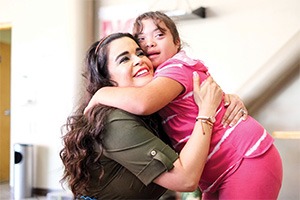Independent Educational Evaluations
 An Independent Educational Evaluation, also known as an IEE, is an evaluation conducted by a neutral, third-party professional not affiliated with the school district that serves your child. Parents and guardians can request an IEE for their child if they disagree with the results of the evaluation conducted by the school district.
An Independent Educational Evaluation, also known as an IEE, is an evaluation conducted by a neutral, third-party professional not affiliated with the school district that serves your child. Parents and guardians can request an IEE for their child if they disagree with the results of the evaluation conducted by the school district.
An IEE can be thought of as a second opinion in the development of your child’s IEP, just as you might seek another professional opinion from a doctor in a medical matter.
When should I request an Independent Educational Evaluation?
While we place an immense amount of trust in educators and school districts to employ the best services available to all children, parents can ultimately make the decisions they feel are best for their children. Once a child’s parent or guardian consents to an assessment plan, special education assessors from your child’s school district are required to conduct the assessment and hold an IEP meeting within 60 days. This meeting is an ideal time to ask questions and gain insight into results, next steps, and understand procedures. Here are some of the most common reasons a parent or guardian requests an IEE:
- You disagree with the results of the school district’s most recent special education assessment of your child
- You disagree with your child’s educational placement
- You disagree with a decrease in services
- You disagree with eligibility for services
- The evaluation did not evaluate all areas of need and/or parent concern
What are the types of special education assessments?
Some common assessments for special education include:
- Psycho-Educational
- Functional Behavioral Assessment (FBA)
- Speech and Language
- Occupational Therapy (OT)
- Augmentative or alternative communication (AAC)
- Assistive Technology (AT)
Who pays for an IEE?
Under the Individuals with Disabilities Act (IDEA) parents of children with special needs may request an IEE to be conducted at public expense if the parent disagrees with the outcome of the district’s evaluation. Parents must initiate the process by making a formal request in writing, sent to the school’s Special Education Coordinator or the district’s Director of Special Education. The district can accept, ignore, or deny the request and file for due process to demonstrate the validity of their assessment. Alternatively, parents can choose to pay for an IEE on their own.
When should I seek legal help??
Parents should seek legal assistance before requesting IEE assessments through a school district. An experienced education rights attorney will be able to provide advice on whether the district’s assessment was appropriate or if it is suitable to pursue an IEE option. Private testing is expensive, and you should exercise your right to a publicly funded IEE. Having a legal advocate on your side throughout this process helps to alleviate the possibility of resistance to further testing from the district and ultimately helps your child receive the services that will enable success throughout their education.
Here’s How We Can Help
The Law Offices of Jennifer Chang believe in protecting students’ rights to a free and appropriate education under both federal and state laws. If your child is eligible to receive special education and was not assessed appropriately, education rights attorney Jennifer Chang will fight vigorously on your child’s behalf. Her offices are located in California in Los Angeles, Buena Park, and San Jose.
Please reach out to us today online or call (323) 931-5270 to discuss your case.